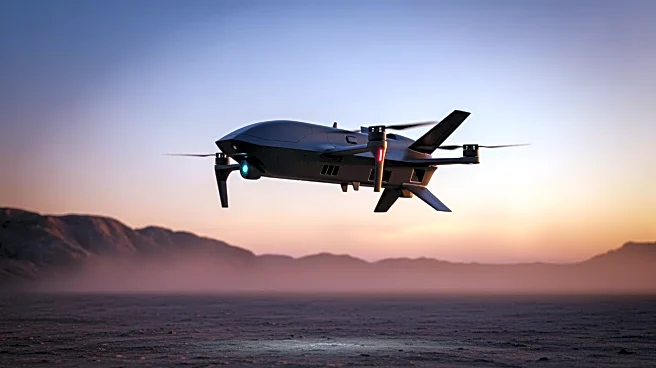What's Happening?
Mexican cartels are increasingly using drones equipped with explosives, mimicking military tactics seen in Ukraine. Recent attacks in Tijuana and Chihuahua involved drones targeting government and military personnel,
highlighting the growing threat of drone warfare by non-state actors. Cartels have reportedly trained in Ukraine to enhance their drone capabilities, blending organized crime with paramilitary tactics. The use of drones by cartels poses significant security challenges for Mexico and the U.S., with implications for border security and law enforcement.
Why It's Important?
The adoption of drone tactics by cartels represents a significant escalation in their capabilities, posing new challenges for security forces in Mexico and the U.S. The use of drones for attacks and surveillance complicates efforts to combat organized crime and secure borders. The threat underscores the need for advanced counter-drone measures and international cooperation to address the evolving tactics of criminal organizations. The situation also highlights the blurred lines between organized crime and paramilitary operations, with implications for regional stability and security.
What's Next?
The U.S. military is enhancing its counter-drone capabilities, forming rapid response teams and seeking contractors for drone training. The development of new surveillance drones aims to improve border security and detect cartel activities. Continued collaboration between Mexico and the U.S. is essential to address the growing threat of drone warfare by cartels. The situation requires ongoing monitoring and adaptation of security strategies to counter the evolving tactics of criminal organizations.











